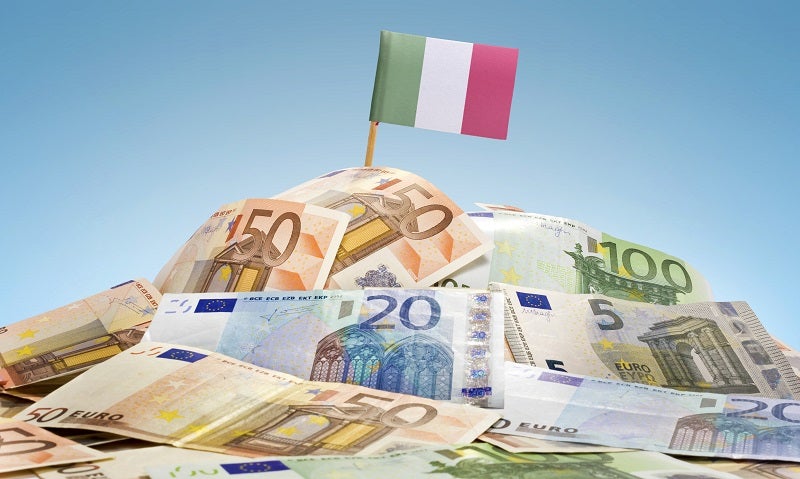
The coming months have been billed as a uniquely favourable time for bank mergers and acquisitions in Italy. Mohamed Dabo reports
The Italian banking sector is poised for a wave of M&As in the next 12 months, says Carlo Messina, chief executive of Italy’s largest bank.

Access deeper industry intelligence
Experience unmatched clarity with a single platform that combines unique data, AI, and human expertise.
According to the CEO of Intesa Sanpaolo, the Italian leader in market capitalisation, “the future for the country is to enter into another season of mergers.”
Indeed, Messina believe that Italy is about to become “the busiest market for bank mergers in Europe in 2021.”
In recent years, the Italian banking sector has been characterised by profound changes, caused by macroeconomic, regulatory, and technological dynamics. This far-reaching transformation is forcing the players in the sector to adopt alternative growth strategies.
A notable factor that has negatively impacted the activity of the banking sector is the highly expansive monetary policy of the European Central Bank (ECB). This course of action by the ECB has pushed interest rates down to a rate of 0%.

US Tariffs are shifting - will you react or anticipate?
Don’t let policy changes catch you off guard. Stay proactive with real-time data and expert analysis.
By GlobalDataThe result has been an extreme thinning of profit margins on the balance sheets of Italian banks. For interest rates on credit assets are one of the traditional sources of profit for banks.
Other sectoral trends, such as the digitisation of services and the entry of new operators into the sector, have brought about a need to find alternative sources of liquidity.
On top of these challenges, is the impact of the Covid-19 pandemic.
According to Ignazio Visco, governor of the Bank of Italy, the pandemic will not spare the banking sector, not least because of non-performing loans. These are loans that are unlikely to be repaid (partially or totally), due to a worsening in the financial condition of debtors.
Although Italian banks seem to have entered the crisis with a stronger financial position than in the past, some of them may not withstand a potential worsening of the country’s economic conditions.
Mergers, acquisitions, and other extraordinary company operations
Extraordinary finance operations appear to be a real trend that will characterise the Italian banking sector in the months to come. Extraordinary finance operations by firms increase their market share and competitiveness.
A probable response to the current scenario is the consolidation of the financial position of banks.
Some banks could adopt growth strategies through mergers and acquisitions, which would result in the creation of real groups that are much more solid and powerful.
The best-known example is the recent acquisition of Ubi Banca by the Intesa San Paolo banking group, resulting in the formation of the first Italian banking group.
The operation, orchestrated by Mediobanca, one of the most active advisors in the Italian M&A panorama, saw 90% of Ubi Banca shareholders adhere to the Public Purchase and Exchange Offer (OPAS) presented by the Intesa San Paolo group.
Following the adhesion by the holders of Ubi Banca shares, a delisting process was initiated—this consisted in the revocation of the shares of Ubi from the Italian stock exchange.
The marriage of Intesa San Paolo and Ubi Banca will result in the formation of a new group that will rank seventh in terms of turnover among the banking giants of the Eurozone.
The combined entity has estimated revenues of around €21bn. It will come in second place (behind BNP Paribas) in terms of market capitalisation, with a value of €35bn.
In the final phase of the extraordinary transaction, BPER Banca will also be involved, acquiring 532 branches from the Intesa San Paolo Group.
The agreement was made necessary in order to complete the merger between Intesa and UBI in compliance with the antitrust regulations.
Speculations are rife
In recent weeks, another potential operation, which sees Banco BPM as the protagonist, has been the subject of several newspaper rapports.
After the end of the third quarter with a record profit and strong growth (€157.3m against the loss of €46.4m suffered in the previous quarter), a statement by Carlo Castagna, CEO of Banco BPM sparks speculations.
He said that he was very satisfied with the result achieved, but that was also open to consolidation through extraordinary finance operations. Observers are watching the bank with a view to a possible aggregation.
Banco BPM was initially compared to Crèdit Agricole, an operation later denied by the official tender offer made by the French group against Credito Valtellinese.
An exception or the beginning of a trend?
From the evidence it seems clear that recourse to extraordinary finance operations is increasingly a key tool for some groups operating in the banking sector.
In fact, through mergers and acquisitions, banks can consolidate and grow to face the new challenges that the banking industry, profoundly changed by the impact of the Covid-19 pandemic, will present them in the future.
Will the acquisition of Ubi Banca by Intesa San Paolo prove to be an exceptional but isolated event?
Or, will it represent the opening words of a real “M&A season”, and therefore the first move of the remedy to the risk among banks operating on the national territory?
Messina believes that “the Italian banking sector needs to concentrate. It must first aggregate at a domestic level and then the international ones.”






